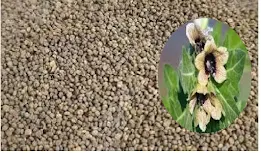 |
| Shri Ram Chandra Kak |
By : Adil Mir
The Kak family, like many Kashmiri Pandit families, was steeped in scholarly pursuits, religious traditions, and political engagements. Growing up amidst the lush valleys and historic towns of Kashmir, Ram Chandra Kak was exposed early to the nuances of governance, diplomacy, and cultural diplomacy that would shape his later life. Kashmir was a princely state under the British Empire, ruled by Maharaja Hari Singh. Amidst growing political tensions, social reforms, and demands for modernity, Kak emerged as a significant political figure. His reputation as an educated, principled, and dedicated leader earned him the trust of the Maharaja Hari Singh and the Kashmiri people.
As Pandit Prime Minister, Kak was known for his brilliant administrative skills and his efforts to balance traditional Kashmiri values with the demands of modern governance. His tenure was marked by reforms in land policies, the promotion of education, and efforts to promote communal harmony in a region riddled with sectarian tensions. However, his tenure was also marked by increasing political unrest that culminated in the turbulent period surrounding Indian independence in 1947, amidst the challenge of statehood. For either India or Pakistan, Kak's role became increasingly complex and fraught with danger.
The defining moment of Kak's political career came on the eve of Indian independence. As the Maharaja's reluctance and disaffection gripped the court, Kak took a principled stand. Recognizing the inevitability of change and perhaps driven by a sense of moral clarity, he resigned from his post. His resignation was a bold act – a claim of integrity in the midst of a crumbling political edifice. However, the decision did not sit well with Maharaja Hari Singh. The Maharaja, wary of Kak’s influence and perhaps suspicious of his loyalty, ordered Kak’s arrest. Kak’s resignation and subsequent arrest marked a turning point not only in his life but also in the history of Kashmir. It marked the end of an era and the beginning of a period of upheaval that would reshape the region forever. While Kak’s political life was turbulent, his personal life was equally complex. During his years of service, he met Margaret
Mary Elcock, an Englishwoman who would become his wife and the central figure in his life story. Affectionately known as Banded, Margaret was a resilient and kind woman, navigating her journey through unfamiliar lands and turbulent times. Their marriage was a union of two worlds—Kashmiri tradition and English modernity. Margaret’s presence in Kak’s life added a layer of personal sacrifice and cultural exchange. She accompanied him during his exile, shared his hopes and disappointments, and became the mother of Lila Kak Bhan, who later co-authored a memoir about her father’s life.
Margaret Mary Elcock’s story is a touching testament to the enduring power of cultural love and partnership in the face of adversity. Her letters, diaries, and stories reveal a strong woman who faced exile and displacement with dignity, forming a silent but powerful resistance to the insurgencies that engulfed Kashmir. In a deep and painstaking research effort, Siddharth Kak and Lila Kak Bhan wrote the memoir “Love, Exile, Salvation: The Story of Kashmir’s Last Pandit Prime Minister and His English Wife.” Their work aimed to preserve the memory of Ram Chandra Kak, an often forgotten figure, and to shed light on personal stories that history often ignores.
Ramchandra Kak’s life is a testament to the enduring human spirit — marked by service, love, exile, and the quest for redemption. His story, preserved through the memoirs and research of Siddharth Kak and Leela Kakbhan, provides a vital link to Kashmir’s past — a past that is rich, complex, and deeply human. Remembering Kak pays tribute to the sacrifices of those who, like him, navigated the deep waters of history with courage and conviction. His legacy prompts reflection on the importance of integrity, cultural harmony, and the enduring power of love in the midst of adversity.
Ram Chandra Kak partition of India
Ram Chandra Kak and Kashmir independence
Ram Chandra Kak,
Ram Chandra Kak Kashmir,
Prime Minister of Kashmir,
Kashmir before 1947,
Kashmir accession history,
Ram Chandra Kak biography,
Ram Chandra Kak political role,
Ram Chandra Kak and Maharaja Hari Singh,
Ram Chandra Kak partition of India,
Ram Chandra Kak and Kashmir independence,








